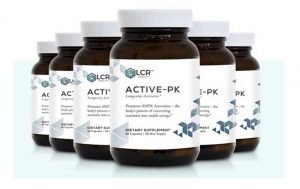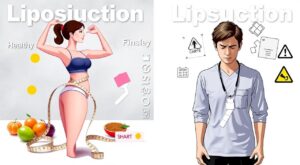Ritalin is a commonly prescribed medication for the treatment of attention deficit hyperactivity disorder (ADHD). It is important to understand the potential benefits and drawbacks of using Ritalin. In the following list, we will explore pros and cons of Ritalin, covering its potential advantages in managing ADHD symptoms, academic performance, and daily functioning, as well as the potential drawbacks and considerations associated with its use.
Pros:
- Improved Focus and Attention: Ritalin can enhance focus and attention, helping individuals with ADHD stay on task.
- Reduced Hyperactivity: Ritalin can help reduce hyperactivity symptoms, allowing individuals to better control their impulses.
- Enhanced Executive Functioning: Ritalin may improve executive functions such as organization, planning, and time management.
- Increased Academic Performance: Ritalin can improve academic performance by aiding concentration and information retention.
- Better Classroom Behavior: Ritalin can help reduce disruptive behavior in the classroom, creating a more conducive learning environment.
- Improved Social Interactions: Ritalin may assist individuals with ADHD in better managing social interactions and relationships.
- Enhanced Cognitive Abilities: Ritalin can improve cognitive abilities such as memory, problem-solving, and decision-making.
- Increased Self-Esteem: Improved ADHD symptoms with Ritalin can boost self-esteem and self-confidence.
- Better Task Completion: Ritalin can increase the ability to initiate and complete tasks, reducing procrastination.
- Improved Time Management: Ritalin can assist individuals with ADHD in better managing their time and meeting deadlines.
- Greater Independence: Ritalin can help individuals with ADHD become more independent in their daily activities.
- Enhanced Quality of Life: Ritalin can improve overall quality of life by reducing the negative impact of ADHD symptoms.
- Reduced Impulsivity: Ritalin can decrease impulsive behaviors, leading to better decision-making and risk management.
- Support for Cognitive Therapy: Ritalin can complement cognitive-behavioral therapy by improving focus and attention during therapy sessions.
- Easier Learning Process: Ritalin can make the learning process less challenging for individuals with ADHD.
- Better Parent-Child Relationship: Ritalin can improve parent-child relationships by reducing conflict and improving communication.
- Reduced Emotional Dysregulation: Ritalin may help individuals with ADHD regulate their emotions more effectively.
- Improved Driving Skills: Ritalin can enhance focus and attention, potentially improving driving skills for individuals with ADHD.
- Enhanced Career Opportunities: Better ADHD symptom management with Ritalin can lead to improved career prospects.
- Access to Support Services: Ritalin use may make individuals eligible for additional support services in educational and occupational settings.
Cons:
- Side Effects: Ritalin can cause side effects such as decreased appetite, insomnia, headache, and stomach upset.
- Cardiovascular Effects: Ritalin may have cardiovascular effects, including increased heart rate and blood pressure.
- Risk of Abuse: Ritalin has the potential for misuse and abuse, particularly among individuals without ADHD.
- Potential Dependency: Ritalin is a stimulant medication that can lead to physical and psychological dependence.
- Individual Variability: The response to Ritalin can vary among individuals, and the effectiveness may differ.
- Disruption of Sleep Patterns: Ritalin can interfere with sleep, leading to difficulty falling asleep or staying asleep.
- Delayed Growth: Long-term use of Ritalin may be associated with slight delays in growth and weight gain in children.
- Medication Tolerance: Some individuals may develop tolerance to the effects of Ritalin over time, requiring dosage adjustments.
- Stigma: There may be social stigma associated with the use of Ritalin or the perception of relying on medication for ADHD management.
- Cost: Ritalin and related ADHD medications can be expensive, potentially posing financial challenges for some individuals.
- Restricted Access: Ritalin is a prescription medication, requiring medical evaluation and supervision.
- Interactions with Other Medications: Ritalin can interact with other medications, so careful monitoring and coordination with healthcare professionals are necessary.
- Emotional Impact: Some individuals may experience emotional side effects with Ritalin, such as irritability, anxiety, or mood swings.
- Loss of Appetite: Ritalin can suppress appetite, leading to weight loss or inadequate nutrition.
- Psychiatric Symptoms: In rare cases, Ritalin may worsen psychiatric symptoms or trigger new ones.
- Monitoring and Evaluation: Regular monitoring and evaluation are necessary to assess the ongoing benefits and potential side effects of Ritalin.
- Stimulant Withdrawal: Abrupt discontinuation of Ritalin can lead to withdrawal symptoms, including fatigue and depression.
- Effectiveness Duration: The effectiveness of Ritalin may vary in duration, requiring careful timing of doses.
- Compliance Challenges: Adhering to the prescribed dosage and schedule may pose challenges for some individuals.
- Long-Term Effects: The long-term effects of Ritalin use are still being studied, and further research is needed.
Pros
- Improved Focus and Attention
- Reduced Hyperactivity
- Enhanced Executive Functioning
- Increased Academic Performance
- Better Classroom Behavior
- Improved Social Interactions
- Enhanced Cognitive Abilities
- Increased Self-Esteem
- Better Task Completion
- Improved Time Management
- Greater Independence
- Enhanced Quality of Life
- Reduced Impulsivity
- Support for Cognitive Therapy
- Easier Learning Process
- Better Parent-Child Relationship
- Reduced Emotional Dysregulation
- Improved Driving Skills
- Enhanced Career Opportunities
- Access to Support Services
Cons
- Side Effects
- Cardiovascular Effects
- Risk of Abuse
- Potential Dependency
- Individual Variability
- Disruption of Sleep Patterns
- Delayed Growth
- Medication Tolerance
- Stigma
- Cost
- Restricted Access
- Interactions with Other Medications
- Emotional Impact
- Loss of Appetite
- Psychiatric Symptoms
- Monitoring and Evaluation
- Stimulant Withdrawal
- Effectiveness Duration
- Compliance Challenges
- Long-Term Effects



